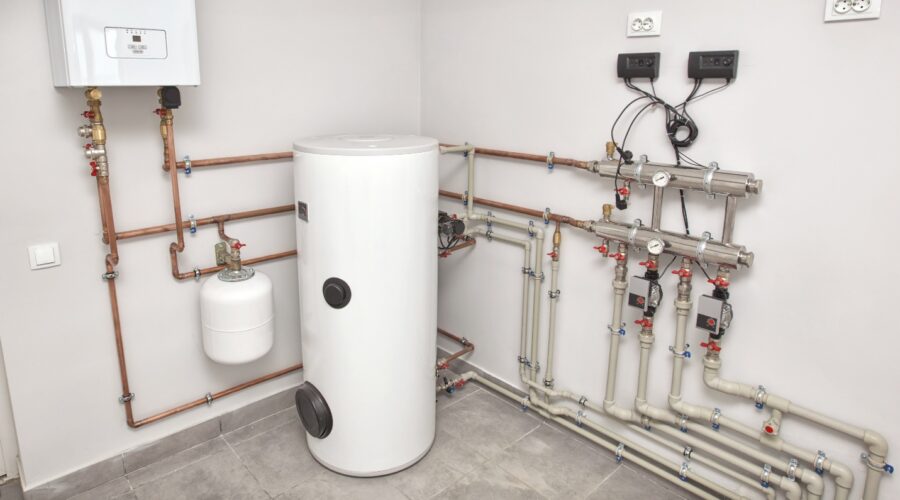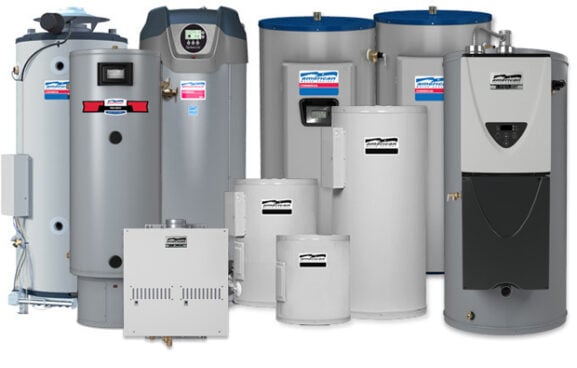When Should A Water Heater Be Replaced
- What are the signs that my water heater is nearing the end of its lifespan
- How do I know if it’s more cost-effective to replace my water heater rather than repairing it
- What are the benefits of switching from a traditional tank water heater to a tankless one
- How can I avoid being overcharged for a water heater replacement
- What should I consider when choosing a new water heater
A water heater should be replaced when it stops working, is old, requires frequent repairs, or isn’t the right type for your needs[.
Here’s a breakdown of when to consider a replacement:
- Age: Most water heaters last around 10 years, so replacement might be better if yours is nearing the end of its lifespan.
- Repair Frequency: If you find yourself calling for repairs every couple of months, it’s likely more cost-effective to replace the unit.
- Cost of Repairs: Compare the cost of repairs to the cost of a new water heater. If the costs are similar, replacing the unit might be the better option.
- Type of Water Heater: You may want to replace your current water heater if you are interested in a different type, such as a tankless water heater.
What are the signs that my water heater is nearing the end of its lifespan
Several signs can indicate that your water heater is nearing the end of its lifespan:
- Age: Most water heaters last between 8 and 20 years. If your water heater is more than 10 years old, it may be time to consider a replacement. Check the serial number on the unit to determine its age.
- Strange Noises: Banging, rumbling, or popping noises can indicate sediment buildup at the bottom of the tank. This means the water heater is working harder than normal and may be close to failing.
- Rusty or Discolored Water: Rust-colored water suggests internal corrosion. This can be due to a failing anode rod, which protects the tank from corrosion.
- Inconsistent Water Temperature: Fluctuating water temperatures or failure to reach the desired heat level can indicate element or thermostat failure in electric heaters, or burner issues in gas heaters.
- Leaks: Any signs of leaking around the water heater, whether from the tank itself or the fittings and pipes, can indicate the tank is failing or connections are loose or corroded.
- Reduced Hot Water: If you’re running out of hot water faster than usual, it could mean your water heater is losing its ability to heat water properly or that sediment buildup has reduced its capacity.
- Bad Odor or Taste: Unpleasant odors or tastes in the hot water can signify bacterial growth inside the tank, often due to sediment buildup.
How do I know if it’s more cost-effective to replace my water heater rather than repairing it
To determine if it’s more cost-effective to replace your water heater rather than repair it, consider the following factors:
- Age of the water heater: If your water heater is over 10 years old, replacement is often more cost-effective. Gas water heaters typically last about 10 years, while tankless water heaters can last 20+ years
- Cost of repairs vs. replacement: Apply the 50% rule – if the repair cost exceeds 50% of the price of a new water heater, opt for replacement. For example, if a new water heater costs $1,000 and repairs are $400, repairing might be more cost-effective.
- Frequency of repairs: If you’re constantly fixing your water heater, replacing it may be more economical in the long run.
- Energy efficiency: Older models are often less efficient, leading to higher utility bills. Upgrading to a newer, more energy-efficient unit can result in long-term savings.
- Performance issues: If your water heater takes longer to heat water or struggles to meet household demands, it may be losing efficiency and costing you more in energy bills.
- Visible damage: Signs of rust, corrosion, or leaks from the tank itself often indicate that replacement is necessary.
By considering these factors together, you can make an informed decision about whether to repair or replace your water heater. If you’re unsure, consult with a professional plumber for expert advice tailored to your specific situation.
What are the benefits of switching from a traditional tank water heater to a tankless one
Switching from a traditional tank water heater to a tankless one offers several significant benefits:
- Continuous hot water supply: Tankless water heaters provide an endless supply of hot water on demand, eliminating the risk of running out during peak usage times.
- Energy efficiency: Tankless models are 24-34% more energy-efficient for homes using 41 gallons or less of hot water daily, as they only heat water when needed, reducing standby heat loss.
- Space-saving design: Tankless water heaters are compact and can be wall-mounted, freeing up valuable floor space in your home.
- Longevity: Tankless water heaters typically last up to 20 years or more, compared to 10-15 years for traditional tank models.
- Reduced risk of water damage: With no large tank to leak or burst, tankless water heaters minimize the risk of water damage to your home.
- Precise temperature control: Tankless models offer more accurate temperature control, ensuring consistent hot water temperatures.
- Lower utility bills: The increased energy efficiency of tankless water heaters can lead to significant savings on monthly utility costs.
- Environmental benefits: Using less energy reduces your home’s carbon footprint.
- Potential tax credits and rebates: Installing a tankless water heater may qualify you for financial incentives in some areas.
- Improved home value: Energy-efficient appliances like tankless water heaters can increase your property’s attractiveness to potential buyers.
By switching to a tankless water heater, homeowners can enjoy these benefits while improving their home’s efficiency and comfort.
How can I avoid being overcharged for a water heater replacement
To avoid being overcharged for a water heater replacement, follow these strategies:
- Purchase your own water heater: Buy the unit directly from a home improvement store or plumbing supply company. This can save you up to 30% on the cost, as plumbers often mark up the price of the water heater.
- Get multiple quotes: Request estimates from at least three different plumbing providers to compare prices and ensure you’re getting a fair deal.
- Ask for a detailed written estimate: Before any work begins, obtain a comprehensive estimate that includes labor costs, materials, and potential additional charges.
- Check for discounts and coupons: Look for available discounts on the plumber’s website, and don’t forget to ask about senior citizen or veteran discounts if applicable.
- Consider energy-efficient options: While tankless water heaters may have a higher upfront cost, they can save you money in the long run due to increased energy efficiency.
- Be aware of potential hidden costs: Factor in expenses such as permits, inspections, and possible plumbing or electrical upgrades, which can add $50 to $2,000 to the total cost.
- Verify credentials and read reviews: Ensure the plumber is licensed, bonded, and insured, and check online reviews from previous customers.
- Avoid DIY installation: While it may seem cost-effective, improper installation can lead to more expensive problems down the line.
- Consider the 50% rule: If repair costs exceed 50% of the price of a new water heater, or if your unit is over 10 years old, replacement may be more cost-effective.
- Be cautious of emergency fees: Non-urgent replacements during regular business hours can help you avoid additional charges of $50 to $200 for emergency services.
By following these tips, you can make an informed decision and avoid unnecessary expenses when replacing your water heater.
What should I consider when choosing a new water heater
When choosing a new water heater, consider the following key factors:
- Fuel type: Determine whether you’ll use electricity, natural gas, propane, or other energy sources based on availability and cost-effectiveness.
- Tank size and capacity: Select a tank that can meet your household’s hot water needs. Generally, 10-15 gallons per occupant is recommended.
- Energy efficiency: Look for models with high Uniform Energy Factor (UEF) ratings and ENERGY STAR certification to save on long-term operating costs.
- Space constraints: Consider the physical dimensions of the water heater and ensure it fits in your designated area.
- Recovery rate: This indicates how quickly the heater can reheat a full tank of water, which is important for larger households or high-demand periods.
- Durability and longevity: Look for features that reduce corrosion and mineral scale buildup, such as glass-lined tanks or fiberglass insulation.
- Warranty: Choose a water heater with the longest warranty available, as longer warranties often indicate better quality and durability.
- Cost considerations: Balance the upfront purchase price with long-term operating costs and potential energy savings.
- Water quality: If you have hard water, consider models with anti-scale devices or corrosion-resistant materials.
- Type of water heater: Decide between traditional tank, tankless, or hybrid heat pump models based on your needs and preferences.
By carefully evaluating these factors, you can select a water heater that best meets your household’s needs while optimizing energy efficiency and long-term performance.


